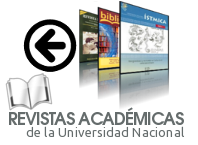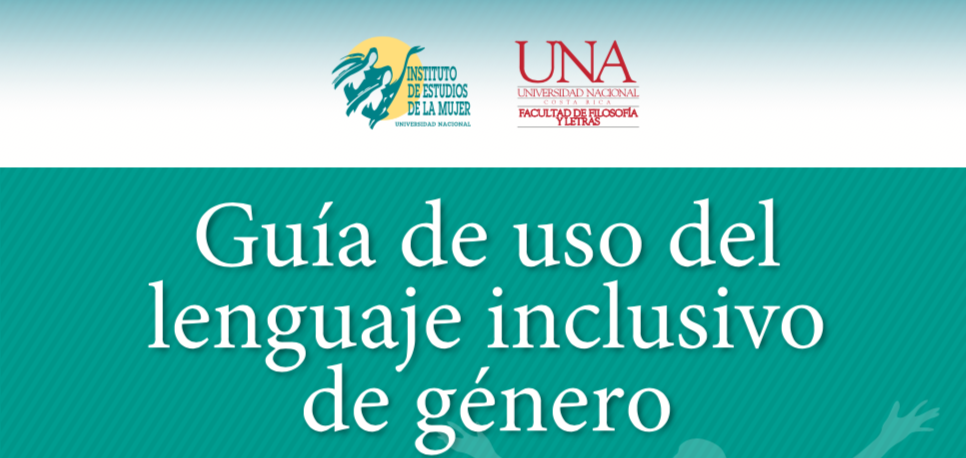Reducctionist biology and medicine: A reflection concerning their limits and epistemogcal roots
DOI:
https://doi.org/10.15359/praxis.83.3Keywords:
Medical science, reductionism, pharmaceutical industry, causal relations, complexity.Abstract
The current massive inoculation of COVID preventive vaccines is the most recent event in which multinational pharmaceutic companies and medical science dependent on them, impose their vision of what the preventive medical treatments must be. Historically speaking, these have been based in a reductionist and mechanicist conception of human body and of the whole of living processes. This conception has been increasingly criticized in favor of a more integral, relational and whole-based visions of living beings. Without belittling the achievements of reductionist medical approach, I consider indispensable to take advantage of the present world-wide sanitary situation in order to open a critical reflection on the methodological foundations of hegemonic medicine. These efforts should be addressed to the construction of an ontological-epistemic plural medical science, stripped of its dependence in large pharmaceutical consortia.
References
Bordieu, P. “El oficio de científico”. (Barcelona: Anagrama, 2001).
Bowler, P. “Evolution: The History of an Idea”. (Berkeley: University of California Press, 2003).
Caparrós, N., y Cruz Roche, R. (directores) “Viaje a la complejidad”. (Madrid: Biblioteca Nueva, 2012).
Crick, F. “Central Dogma of Molecular” Biology. Nature, 227, (1970) 561-563.
Darwin, C. “The Variation of Plants and Animals under Domestication” (2 vol.). (Baltimore: Johns Hopkins University Press, 1998) [1868].
Darwin, C. “The Origin of Species”. (Cambridge, MA: Harvard University Press, 1964) [1859].
De la Mettrie, J. O. “El hombre máquina”. (Buenos Aires: Editorial Universitaria de Buenos Aires, 1962) [1747].
De la Peña, C. y Loyola, M. “De la genética a la epigenética.” (Ciudad de México: Fondo de Cultura Económica, 2017).
Descartes, R. “Tratado del hombre”. (Madrid: Nacional, 1989) [1633].
Descartes, R. “Los principios de la filosofía”. (Madrid: Alianza Universidad, 1995) [1647].
Descartes, R. “Meditaciones metafísicas”. (Madrid: Espasa Calpe, 1996 b) [1628].
Descartes, R. “Reglas para la dirección del espíritu”. (Madrid: Alianza Editorial, 1996 b) [1628].
Dupré J. “The Disorder of Things: Metaphysical Foundations of the Disunity of Science”. (Cambridge, MA: Harvard University Press, 1993).
Dupré, J. “Humans and Other Animals”. (Oxford: Oxford University Press, 2002).
Durkheim, E. “Las reglas del método sociológico.” (México DF: Ediciones Coyoacán, 2001).
Engels, F. “Dialéctica de la naturaleza”. (México DF: Grijalbo, 1961) [1890].
Engels, F. “Anti Dühring”. (México DF: Ediciones de Cultura Popular, 1975) [1894].
Foster, J. B. “La ecología de Marx: Materialismo y naturaleza” (Barcelona: El Viejo Topo, 2000).
Freud, S. “Obras completas”. (Madrid: Biblioteca Nueva, 2017).
García, R. “Sistemas complejos. Conceptos, métodos y fundamentación epistemológica de la investigación interdisciplinaria”. (Barcelona: Gedisa, 2007).
Gissis, S. B. y Jablonka, E. (Editores) “Transformations of Lamarckism”. (Cambridge, MA: MIT Press, 2011).
González Casanova, P. “Las nuevas ciencias y las humanidades”. (Barcelona: Anthropos, 2004).
Gould, S. J. “The Structure of the Theory of Evolution”. (Cambridge, MA: MIT Press, 2002).
Hegel, G. W. F. “Science of Logic”. (London: George Allen & Unwind, 1951) [1812-1816].
Hegel, G. W. F. “Lectures on Logic”. (Bloomington: Indiana University Press, 2001) [1831].
Hobbes, T. “Leviatán.” (México DF: Fondo de Cultura Económica, 2001) [1651].
Hume, D. “A Treatise on Human Nature”. (Oxford: Oxford University Press, 1992) [1739-1740].
Hume, D. “Enquires Concerning Human Understanding and Concerning the Priciples of Morals” (Oxford: Oxford University Press, 2000) [1777].
Jablonka, E. y Lamb, M. “Epigenetic Inheritance and Evolution: The Lamarckian Dimension”. (Oxford: Oxford University Press, 1995).
Jablonka, E. y Lamb, M. “Evolution in Four Dimensions: Genetic, Epigenetic, Behavioral and Symbolic Variation in the History of Life”. (Cambridge, MA: MIT Press, 2005).
Koonin, E. V. “Does the Central Dogma Still Stand?” Biology Direct, 7, (2012) 27.
Lamarck, J. B. M. “Philosophie Zoologique, ou Exposition Histoire Naturelle des Animaux”.( Paris: De L’Imprmièrie de Duminil-Lesueur, 1809).
Leibniz, G. W. “Monadología”, en Leibniz. (Madrid: Colección Gredos Grandes Pensadores, 2018) [1714].
Levins, R. Dialectics and Systems Theory. En R. Levins y R. C, Lewontin (Eds.), “Biology under the Influence; Dialectical Essays in Ecology, Agriculture and Health”. (New York: Monthly Review Press, 2007) 101-124.
Levins. R. y Lewontin, R. C. “The Dialectical Biologist”. (Cambridge, MA:Harvard University Press, 1985).
Lewontin, R. Foreword. En A. I. Tauber (Ed.), “Organism and the Origins of Self. BSPS” Vol. 129, 1991), XIII-XIX.
Lewontin, R. C. “The Triple Helix”. (Cambridge, MA: Harvard University Press, 2000).
Lewontin, R. y Levins, R. “Biology under the Influence; Dialectical Essays on Ecology, Agriculture and Health”. (New York: Monthly Review Press, 2007).
Lovelock, J. “Gaia: A New Look at Life on Earth”. (Oxford: Oxford University Press, 1995).
Locke, J. “Ensayo sobre el entendimiento humano”. (México DF: Fondo de Cultura Económica, 2005) [1690].
Margulis, L. “Una revolución en la evolución”. (Valencia: Universitat de Valencia, 2002).
Marx. K. “Tesis sobre Feuerbach, en Marx, K. y F. Engels: Obras escogidas.” Moscú: Progreso, (1955) [1845-1846]. Tomo II, 401-403.
Marx, K. [F. Engels] “El capital, Libro III”. (México DF: Siglo XXI, 1985).
Marx, K. “Contribución a la crítica de la economía política”. (México DF: Siglo XXI, 1987a) [1859].
Marx, K. “Contribución a la crítica de la economía política”. (México DF: Siglo XXI, 1987 b) [1859].
Marx, K. “El capital, Libro I”. México DF: Siglo XXI, 1988) [1867].
Marx, K. y Engels, F. “Obras escogidas en dos tomos”. (Moscú: Progreso, 1977).
Mendel, G. “Experiments on Plant Hibridization”. (Cambridge, MA: Harvard University Press, 1965) [1866].
Mill, J. S. “A System of Logic: Racionative and Inductive”. (New York: Harpers & Brothers Publishers, 1904) [1843].
Morín, E. “Introducción al pensamiento complejo”. (Barcelona: Gedisa, 2017).
Muñoz Rubio, J. (Coordinador). “La biología evolutiva contemporánea: ¿Una revolución más en ciencia?” (Ciudad de México: UNAM, 2018a)
Muñoz Rubio, J. Dialectics and Neo-Lamarckism against the Fetishim of Genes. En T. Awerbuch, M. S. Clark y P. J. Taylor (Eds.), “The Truth is the Whole: Essays in Honor of Richard Levins”. (Arlington, MA: The Pumping Station, 2018b), 24-55.
Muñoz Rubio, J. La revolución en biología como cuestionamiento de las relaciones esencia-apariencia (una crítica al inmanentismo neo-darwinista). En J. Muñoz Rubio (Coordinador), “La biología evolutiva contemporánea ¿una revolución en ciencia?” (Ciudad de México: UNAM, 2018c) 23-69.
Noble, D. “The Music of Life: Biology Beyond Genes”. (Oxford: Oxford University Press, 2006).
Odling-Smee, F. J, Laland, K. N. y Feldman, M. W. “Niche Construction: The Negelcted Process in Evolution”. (Princeton: Pricenton University Press, 2003).
Oyama, S. “The Ontogeny of Information: Developmental Systems and Evolution”. (Durham, NC: Duke University Press, 2000a).
Oyama, S. “Evolution’s Eye: A Systems View of the Biology-Culture Divide”. (Durham, NC: Duke University Press, 2000b).
Oyama, S. Griffits, P. E. y Gray, R. D. “Cycles of Contingency: Developmental Systems and Evolution”. (Cambridge, MA: MIT Press, 2001).
Pichot, A. “Historie de la Notion de Gène”. (Paris: Flammarion, 1998).
Rose, S. “Lifelines: Biology, Freedom, Determinism”. (London: Penguin, 1997).
Royle, C. “Dialectics, Nature and the Dialectics of Nature”. International Socialism, 141, (2014) 97-118.
Sachs, W. “Planet Dialectics: Explorations in Environment & Development”. (Halifax: Ferwood Publishing, 1999).
Sarkar, S. “Genetics and Reductionism”. (Cambridge: Cambridge University Press, 1998).
Shapiro, J. A. “Revisiting the Central Dogma in the 21st Century”. Annals of the New York Academy of Sciences (Natural Genetic Engineering and Natural Genome Editing), 1178, (2009) 6–28.
Shapiro, J. A. “Evolution: A View from the 21st”. Century. “Upper Saddle River: FT Press, 2011).
Smith, A. “The Wealth of Nations”. (London: J. M. Dent & Sons Ltd. 1954) [1776-1778].
Stearns, S. C. y Coella, J. (Eds.) “Evolution in Health and Disease”. (Oxford: Oxford University Press, 2008).
Stotz, K.“Molecular Epigenesis: Distributed Specificity as a Break in the Central Dogma”, History and Philosophy of the Life Sciences, 26 (3-4), (2006) 527-544.
Sultan, S. E. “Organism and Environment: Ecological Development, Niche Construction, and Adaptation”. (Oxford: Oxford University Press, 2015).
Tauber, I. (Editor). “Organism and the Origins of Self” (Dordrecht: Kluwer Academic Publishers, 1991).
Tauber, I. “Immunity: The Evolution of an Idea”. (Oxford: Oxford University Press, 2017).
Taylor. J. “Body by Darwin: How Evolution Shapes our Health and Transforms Medicine”. (Chicago: University of Chicago Press, 2015).
Watson, J. D. y Crick, F. H. C. “Molecular Structure of Nucelic Acids.” Nature, 171. (1953a). 737-738.
Watson, J. D. y Crick, F. H. C. “Genetical Implications of the Structure of the Desoxirribomucleic Acid”. Nature, 171. (1953b). 964-967.
Weber, M. “Economía y sociedad”. (México DF: Fondo de Cultura Económica, 1964).
Weismann, A. “Studies in the Theory of Descent”. (New York: AMS Press, 1882).
Woods, A. y Grant, T. “Razón y revolución: Filosofía marxista y ciencia moderna”. (Madrid: Fundación Federico Engels, 2002).
Downloads
Additional Files
Published
How to Cite
Issue
Section
License
La revista trabaja bajo la Licencia Creative Commons Atribución-NoComercial-CompartirIgual 4.0 Internacional; apartir de la publicación número 79 (2019); en publicaciones anteriores se trabajaba bajo una Licencia Atribución- No Comercial- Sin Derivadas 4.0 Internacional.







